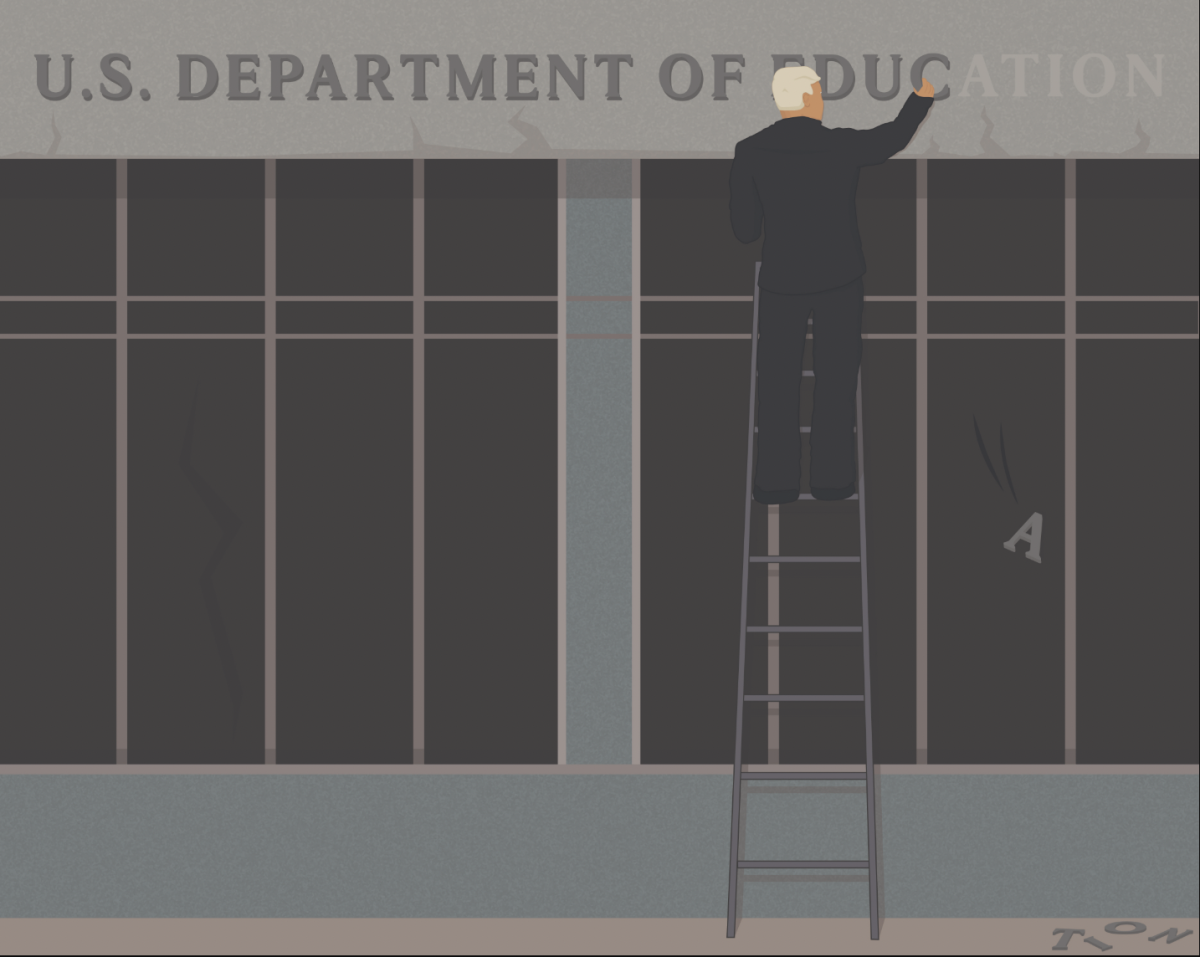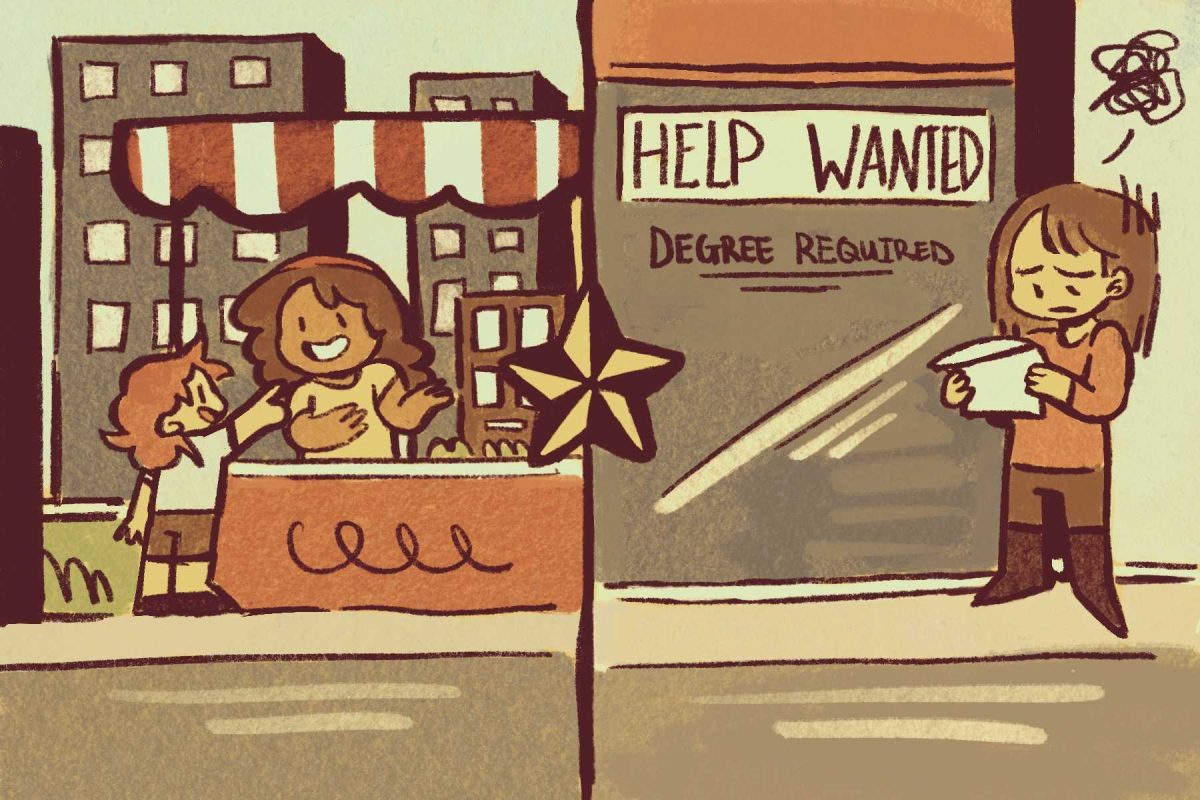Following an “affirmative action bake sale” organized by The Young Conservatives of Texas at The University of Texas in October 2016, which required some students pay more for baked goods than others depending on their race, Lt. Gov. Dan Patrick directed the Senate Committee on State Affairs to conduct a study of free speech on college campuses.
With our own campus being no stranger to First Amendment conflicts, that committee is now scheduled to arrive at Texas State and hold a hearing at 10 a.m. Wednesday in the LBJ Ballroom. The committee will allot 2 minutes for anyone on campus who cares to weigh in on the issue of free speech on our campus.
The First Amendment, which includes the freedoms of religion, assembly, petition, press and particularly speech is a civil liberty that is the center of ire and reverence across the country and on the Texas State campus. The same students and administrators who organize behind its values, will work to violate them. However, while the First Amendment only prevents the government from infringing on our right to free speech, it is paramount that we uphold the freedom of speech among each other, as well.
When the framers wrote the Bill of Rights solidifying the freedom of speech into American government, they were inspired by the autocratic monarchs of Europe. And to this day, North Korea, China and Russia are among the many countries where journalists and citizens are punished for sharing unauthorized information and or critiques of the government according to the World Press Freedom Index. Citizens of these countries may suffer at the hands of oppressive governments with no claim to any protection regarding the exchange of ideas — the precursor to liberation.
Additionally, on our own campus, there have been attempts to scare free speech into hiding sanctioned by the complicit silence of prominent administrators. Furthermore, student organizers have led the charge in selecting who they think ought to exercise free speech. While it is true that the First Amendment only protects citizens from the government; whether it comes from the government, university administration or a simple majority, any attack on free speech must be defended at all costs.
Even hate speech is protected by the First Amendment as illustrated in the Brandenburg v. Ohio case of 1968. In that case, a Ku Klux Klan member is jailed for a speech that threatened the U.S. government with, “revengance” should they continue to, “oppress the Caucasian race.” This idea was surrounded with slurs and hateful rhetoric directed at African-Americans.
The sentiment that the Klansman shared, is unequivocally disgusting and unfounded. But his right to speak it must be protected. While it may seem unethical, it would be that same right that allowed abolitionists and later Civil Rights activists to drive him and his white supremacist message underground. These men and women used their right to free speech to advocate for equality during a time when it was a radical ideal. Free speech is what keeps our society evolving and allows our civilization to stand the test of time.
The government may not be encroaching on our rights to free speech, but we are diminishing the use of that right among ourselves by silencing opinions that we find inconvenient for our biases. This observation adds to the gravity of the upcoming hearing, and The University Star editorial board hopes it will allow our university to find common ground concerning one of the greatest rights we all share as American citizens.
Categories:
Greatest threat to free speech is ourselves
January 31, 2018
The Main Point is an opinion written collectively by The University Star’s Editorial Board. Opinions expressed are not necessarily those of our entire publication.
0
Donate to The University Star
Your donation will support the student journalists of Texas State University. Your contribution will allow us to purchase equipment and cover our annual website hosting costs.
More to Discover















